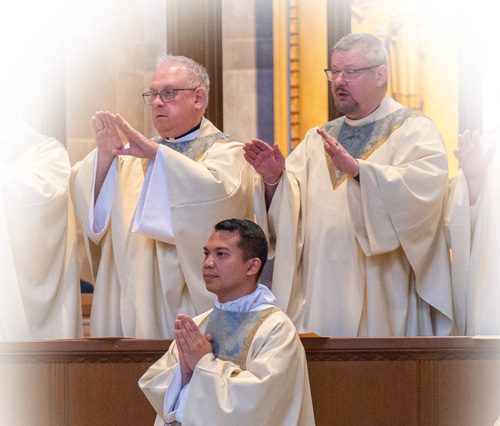Your will is not something that should be created and forgotten. Here are 4 reasons to update (or create) your will.
 Creating a will is a bit like exercising: We know we should just do it, but there may be other demands on our time, such as work, family, and giving back to the community that keep us from tackling it today. Plus, we reason, there’s always time to hit the gym or go for a run later. Perhaps that’s why a recent survey by Caring.com found that 57 percent of U.S. adults do not currently have a will or living trust. And just one in five 18- to 34-year-olds said they have an estate plan in place.
Creating a will is a bit like exercising: We know we should just do it, but there may be other demands on our time, such as work, family, and giving back to the community that keep us from tackling it today. Plus, we reason, there’s always time to hit the gym or go for a run later. Perhaps that’s why a recent survey by Caring.com found that 57 percent of U.S. adults do not currently have a will or living trust. And just one in five 18- to 34-year-olds said they have an estate plan in place.
Between your hard work and God’s blessings, you may have built up assets that provide for you and your family. And, of course, you want to ensure that those assets are distributed according to your wishes. Whether you have a will that hasn’t been revisited in a while or you’re starting from scratch, there are a number of reasons why you’ll want to think about your will and create or update it.
Making a move
Sometimes, the path we’re on brings us to new places. Perhaps you are planning to move to be closer to family or to take a new job. Or, you may dream of retiring in a warmer climate. It’s important to remember that estate planning laws vary by state.
If you’ve moved across state lines, you should review your will to be sure it’s in compliance with the laws of your new home state. For example, some states may have requirements with regard to who may serve as an executor or is entitled to certain property. It’s a good idea to consult an estate planning attorney or other legal expert to ensure that your will is compliant.
Family matters
One of life’s greatest gifts is family. But families also undergo big changes throughout a lifetime. These may include:
• Giving birth to or adopting children
• Change in marital status
• Circumstances related to a family member’s illness or disability
• A death in the family
And many others. For example, a new parent may need to add a child to the will. If a child has a disability, parents may want to structure their will to provide for the child later in life. Perhaps a widow is ready to remarry and will retire to Florida with her new spouse; her will should reflect this new marital status. Whenever your family experiences such an event or change, revisit your will — and your estate plan — to see if you need to make changes.
Wealth changes
Over the course of a lifetime, your career may change, and your net worth may fluctuate. Revisiting your will periodically will allow you to amend your will to reflect those changes and make appropriate plans to provide for your family, church, and other priorities. Let’s say you made a great investment or launched a business that has become wildly successful.
You may find that, in addition to a will, you would benefit from more charitable giving or a trust that provides income while giving you important tax benefits. This is particularly important for high net worth families who may be transferring estates worth more than $11.4 million per individual or $22.8 million for a married couple. Those are the federal thresholds at which estates are subject to estate taxes in 2019 (state regulations may be different and vary by state).
Legacy-building
As you get closer to retirement age or 70½ — the age at which many non-Roth retirement plans require you to begin taking required minimum distributions from your plan — you may begin thinking about the legacy you want to leave with your assets. How will you leave a lasting impact and use your assets to support those causes closest to your heart, even after you’re called home to God?
While there are a wide variety of options, ranging from bequests to trusts, that allow you to provide for the future, endowment funds offer some unique advantages. When you establish an endowment fund, your upfront contribution can give you immediate tax advantages. At the same time, the funds are invested by the fund manager and proceeds give back in perpetuity to the cause you choose. With some other forms of giving, once your donation is used, the benefits to the organization cease.
When you’re thinking about your legacy, it’s important to think about the long-term impact you wish to make. While no one likes to think about estate planning, revisiting your will and updating it regularly will ensure that you provide for the people, purposes, and causes most important to you.
Looking for ways to keep the causes that are close to your heart and faith in your estate plans? Contact us to learn more about how Catholic Community Foundation can help you with estate planning that includes Catholic causes.



